Cross Functional Doesn't Mean Everyone Can Do Everything
On an Agile team, every team member should be able to do every task, right? Actually, you can benefit from a mix of specialists and multi-skilled individuals.
Join the DZone community and get the full member experience.
Join For Freeperhaps the most prevalent and persistent myth in agile is that a cross-functional team is one on which each person possesses every skill necessary to complete the work.
this is simply not true.
a cross-functional team has members with a variety of skills, but that does not mean each member has all of the skills.
specialists are acceptable on agile teams
it is perfectly acceptable to have specialists on an agile team. and i suspect a lot of productivity has been lost by teams pursuing some false holy grail of having each team member able to do everything.
if my team includes the world’s greatest database developer, i want that person doing amazing things with our database. i don’t need the world’s greatest database developer to learn javascript.
specialists make it hard to balance work
however, specialists can cause problems on any team using an iterative and incremental approach such as agile. specialists make it hard to balance the types of work done by a team. if your team does have the world’s greatest database developer, how do you ensure your team always brings into an iteration the right amount of work for that person without bringing in too much for the programmers, the testers, or others?
to better see the impact of specialists, let’s look at a few examples. in figure 1, we see a four-person team where each person is a specialist. persons 1 and 2 are programmers and can only program. this is indicated by the red squares and the coding prompt icon within them. persons 3 and 4 are testers who do nothing but test. they are indicated by the green square and the microscope icon within those. you can imagine any skills you’d like, but for these examples, i’ll use programmers (red) and testers (green).
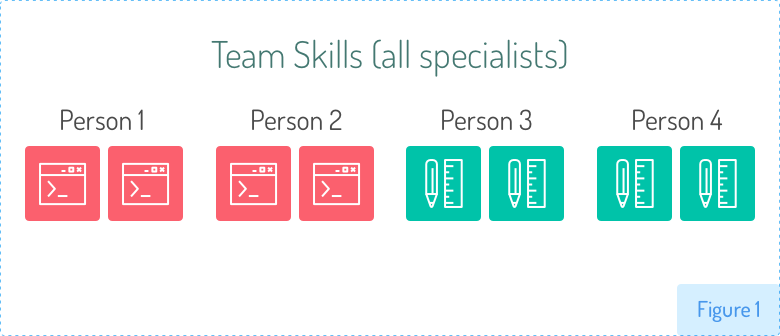
the four-person team in figure 1 is capable of completing four red tasks in an iteration and four green tasks in an iteration. they cannot do five red tasks or five green tasks.
but if their work is distributed across two product backlog items as shown in figure 2, this team will be able to finish that work in an iteration.
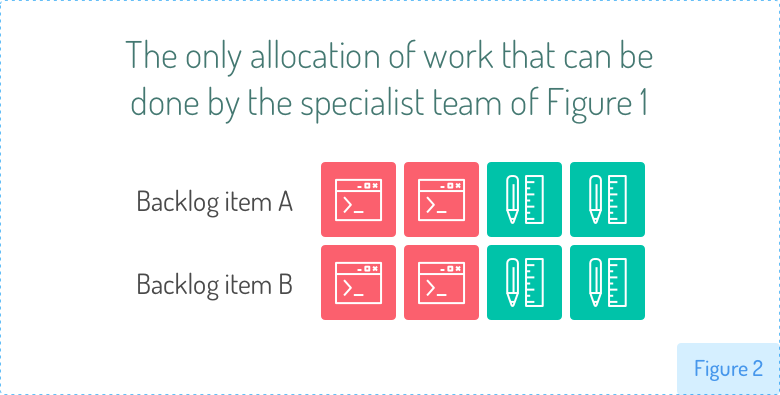
but, any allocation of work that is not evenly split between blue and green work will be impossible for this team to complete. this means the specialist team of figure 1 could not complete the work in any of the allocations shown in figure 3.
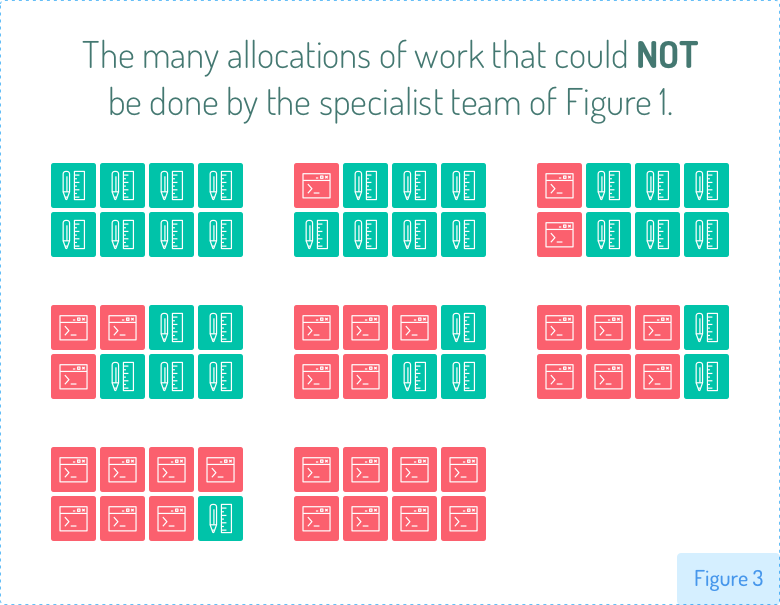
the impact of multi-skilled team members
next, let’s consider how the situation is changed if two of the specialist team members of figure 1 are now each able to do both red and green work. i refer to such team members as multi-skilled individuals . such team members are sometimes called generalists , but i find that misleading. we don’t need someone to be able to do everything . it is often enough to have a team member or two who has a couple of the skills a team needs rather than all of the skills.
figure 4 shows this team. persons 1 and 2 remain specialists, only able to do one type of work each. but now, persons 3 and 4 are multi-skilled and each can do either red or green work.
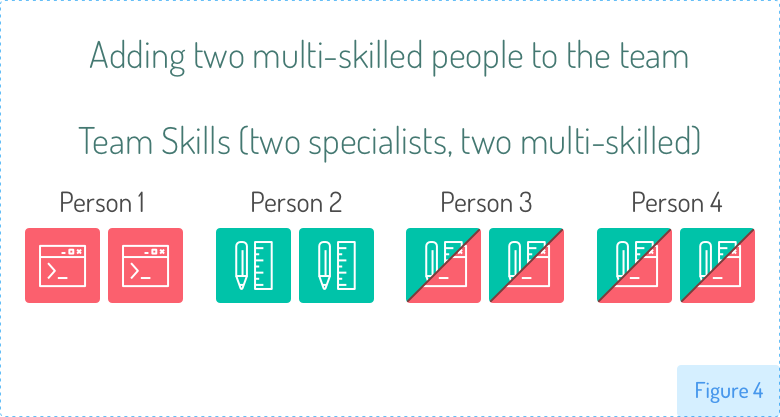
this team can complete many more allocations of work than could the specialist team of figure 1. figure 5 shows all the possible allocations that become possible when two multi-skilled members are added to the team.
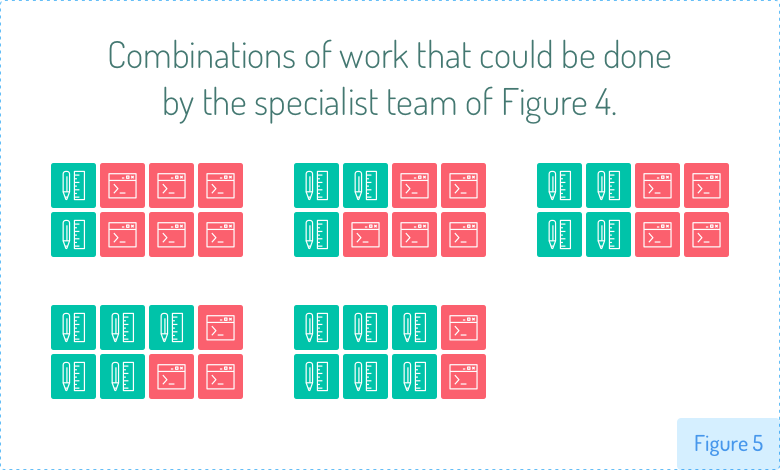
by replacing just a couple of specialists with multi-skilled members, the team is able to complete any allocation of work except work that would require 0 or 1 unit of either skill. in most cases, a team can avoid planning an iteration that is so heavily skewed simply through careful selection of the product backlog items to be worked on. in this example, if the first product backlog item selected was heavily green, the team would not select a second item that was also heavily green .
the role of specialists on an agile team
from this, we can see that specialists can exist on high-performing agile teams. but, it is the multi-skilled team members who allow that to be possible. there is nothing wrong with having a very talented specialist on a team--and there are actually many good reasons to value such experts.
but a good agile team will also include multi-skilled individuals. these individuals can smooth out the workload when a team needs to do more or less of a particular type of work in an iteration. such individuals may also benefit a team in bringing more balanced perspectives to design discussions.
evidence from my local grocery store
as evidence that specialists are acceptable as long as they are balanced by multi-skilled team members, consider your local grocery store. a typical store will have cashiers who scan items and accept payment. the store will also have people who bag the groceries for you. if the bagger gets behind, the cashier shifts and helps bag items. the multi-skilled cashier/bagger allows the store to use fewer specialist baggers per shift.
what role do specialists play on your team?
what role do specialists play on your team? what techniques do you use to allow specialists to specialize? please share your thoughts in the comments below.
Published at DZone with permission of Mike Cohn. See the original article here.
Opinions expressed by DZone contributors are their own.

Comments